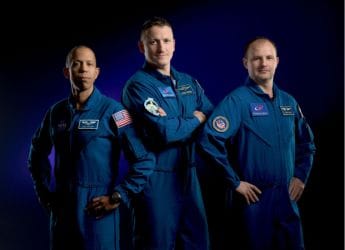- Home
- Science
- Science News
- New Biosensor in Seatbelts Tracks Driver Stress and Health Levels
New Biosensor in Seatbelts Tracks Driver Stress and Health Levels
A new seatbelt-integrated biosensor reliably tracks heart rate and respiration, helping monitor driver alertness in moving vehicles.

Photo Credit: Pixabay
Researchers have developed a groundbreaking biosensor integrated into seatbelts.
A breakthrough in biosensor technology could enable the real-time monitoring of stress and alertness in drivers and pilots. Developed by researchers from the National University of Singapore and Tsinghua University, the device, integrated into seatbelts, tracks heartbeat and respiration without needing direct contact with the skin. This innovation, detailed in Nature Electronics, promises to enhance safety in vehicles and aircraft by reliably gathering cardiopulmonary data even in dynamic environments.
Engineering the Non-Contact Biosensor
The device incorporates metamaterials, which are advanced engineered materials, to optimise signal transmission. Conductive threads in a comb-shaped pattern are embroidered into the seatbelt, allowing radio waves to interact with the user's body. Xi Tian, co-author of the study, explained that this design helps minimise environmental interference, such as vibrations from moving vehicles, while maintaining sensitivity to physiological signals. A processing system was implemented to ensure that the collected data remains consistent and reliable during motion.
Real-World Testing Highlights Reliability
Tests carried out in a car and an airline cabin simulator revealed the biosensor's ability to conform to the user's body and detect physiological signals in challenging conditions. It maintained accuracy during a 1.5-hour vehicle route in Singapore and identified heart rate variations in an aircraft setting, enabling sleep-wake detection. Tian highlighted that these results demonstrate the device's potential for consistent health monitoring across varied environments.
Future Applications and Advancements
Further research aims to refine the technology for mass production, with a focus on compact and cost-effective designs. Tian stated that collaborations with automotive manufacturers are planned to validate the system in real-world applications. The development of algorithms to interpret data for fatigue and stress assessments is also in progress. This biosensor could become an essential feature in transport, helping prevent accidents by ensuring drivers and pilots remain alert.
Catch the latest from the Consumer Electronics Show on Gadgets 360, at our CES 2026 hub.
Related Stories
- Samsung Galaxy Unpacked 2025
- ChatGPT
- Redmi Note 14 Pro+
- iPhone 16
- Apple Vision Pro
- Oneplus 12
- OnePlus Nord CE 3 Lite 5G
- iPhone 13
- Xiaomi 14 Pro
- Oppo Find N3
- Tecno Spark Go (2023)
- Realme V30
- Best Phones Under 25000
- Samsung Galaxy S24 Series
- Cryptocurrency
- iQoo 12
- Samsung Galaxy S24 Ultra
- Giottus
- Samsung Galaxy Z Flip 5
- Apple 'Scary Fast'
- Housefull 5
- GoPro Hero 12 Black Review
- Invincible Season 2
- JioGlass
- HD Ready TV
- Laptop Under 50000
- Smartwatch Under 10000
- Latest Mobile Phones
- Compare Phones
- Tecno Spark Go 3
- iQOO Z11 Turbo
- OPPO A6c
- Samsung Galaxy A07 5G
- Vivo Y500i
- OnePlus Turbo 6V
- OnePlus Turbo 6
- Itel Zeno 20 Max
- Lenovo Yoga Slim 7x (2025)
- Lenovo Yoga Slim 7a
- Lenovo Idea Tab Plus
- Realme Pad 3
- Garmin Quatix 8 Pro
- NoiseFit Pro 6R
- Haier H5E Series
- Acerpure Nitro Z Series 100-inch QLED TV
- Asus ROG Ally
- Nintendo Switch Lite
- Haier 1.6 Ton 5 Star Inverter Split AC (HSU19G-MZAID5BN-INV)
- Haier 1.6 Ton 5 Star Inverter Split AC (HSU19G-MZAIM5BN-INV)
-
 Is Space Sticky? New Study Challenges Standard Dark Energy Theory
Is Space Sticky? New Study Challenges Standard Dark Energy Theory
-
 Sirai OTT Release: When, Where to Watch the Tamil Courtroom Drama Online
Sirai OTT Release: When, Where to Watch the Tamil Courtroom Drama Online
-
 Wheel of Fortune India OTT Release: When, Where to Watch Akshay Kumar-Hosted Global Game Show
Wheel of Fortune India OTT Release: When, Where to Watch Akshay Kumar-Hosted Global Game Show
-
 NASA Confirms Expedition 74 Will Continue ISS Work After Crew-11 Exit
NASA Confirms Expedition 74 Will Continue ISS Work After Crew-11 Exit












